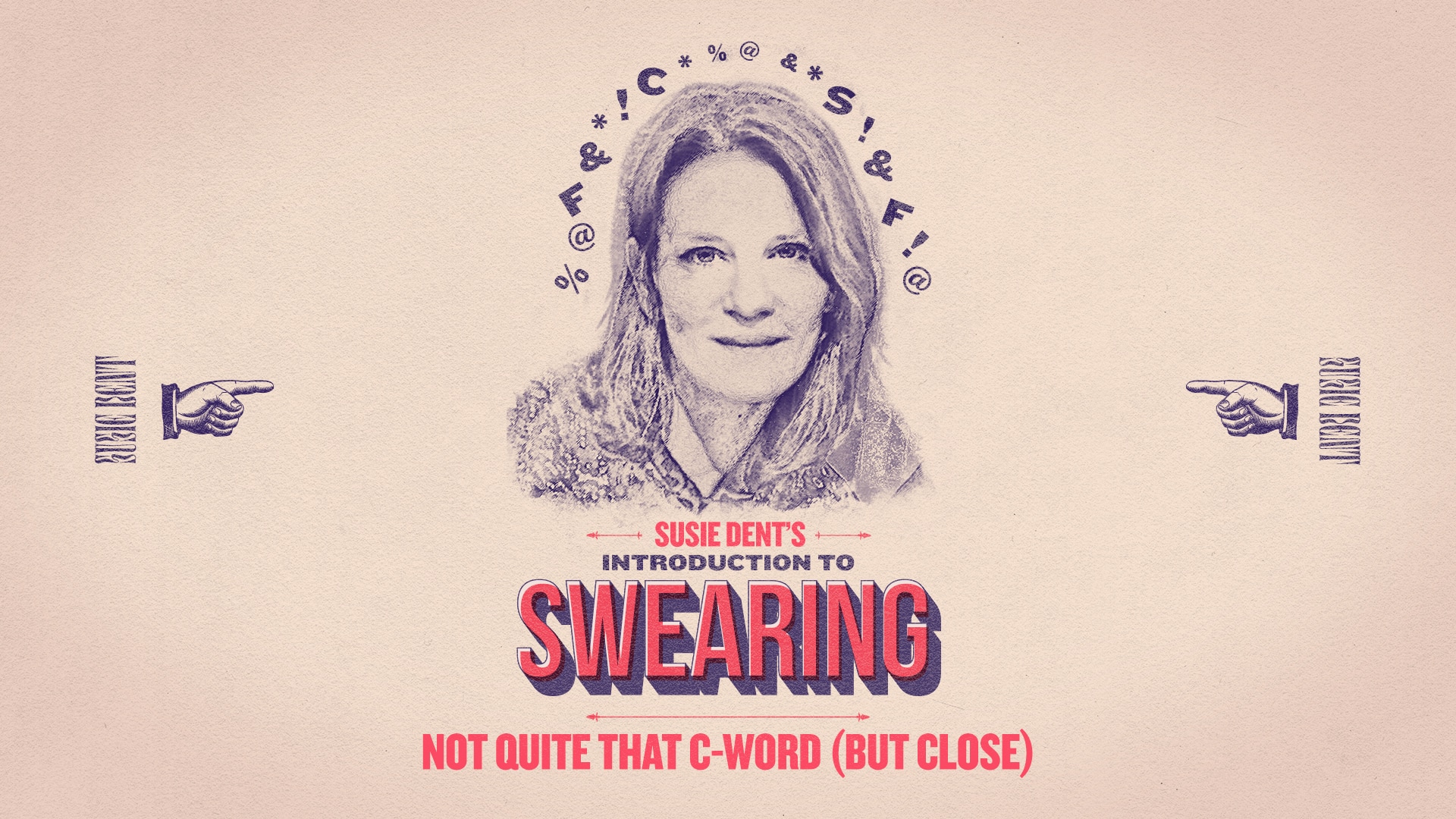

Have you ever gone towards something like a cock at a gooseberry? Perhaps you’ve cried cock, been a cock of the school, or been given the cock? Dropped your cocks and grabbed your socks maybe? Or even, painfully, stepped on your cock? Turn to the entry for this particular C-word in the Oxford English Dictionary and you’ll find a pleasingly long list of turns of phrase that might just, well, make you quite cock a hoop.
Of course, not all of these belong to the swearing lexicon. A cock is, first and foremost, a cockerel. In its earliest uses, in Old English, it referred to cockcrow or early morning, as well as a weathervane in the form of a rooster. Like a ‘cock at a gooseberry’ therefore conveys going for something like a shot, while to ‘cry cock’ is to acknowledge another as the victor and admit defeat, much like a victorious bird in the cruel ‘sport’ of cockfighting.

Both the cocktail and the cockpit also invoke the bird: the first might refer to the use of a rooster feather to decorate a drink, while the second suggests a tight and possibly armed space, similar to that of a cock-fighting arena.
Like other swears, notably ‘fuck’ and ‘cunt’, ‘cock’ made its earliest outings in personal and place names. Here again, the reference is more likely to be to the bird. Godui Coccesun (Godwin Cockson) lived in the 11th century, and William Le Cock presumably strutted his considerable stuff in the 13th. Cockfosters in London still speaks to its history as the residence of the cock, or chief, forester.

Not until the 14th century did ‘cock’ become a stand-in for the penis – usually in the forms ‘pillicock’ and ‘fidcock’. These last two carry some interesting evidence in the Oxford English Dictionary. There is reference to a line in King Lear, for example, that ‘Pillicock sat on Pillicock hill’.
The Dictionary tells us that some linguists believe ‘pillicock hill’ to refer to ‘a woman’s mons veneris’, but that ‘evidence for this is lacking’ (the mons veneris, or ‘Mount of Venus’, is the fatty tissue that covers the pubic bone). More confusingly, ‘pillicock’ was also used as a term of endearment for a young boy, leading to such compliments as this, from 1611, ‘I cannot tell my Pillicock, but thou art worth more than gold’.

If you are thinking that ‘pillicocke’ sits very close to ‘pillock’, you’d be right, for that too meant the penis in the same period. Rather than progressing to a compliment, however, ‘pillock’ became in the 1960s a satisfying synonym for a fool – ‘what are you talking about, you great hairy pillock?’.
Back to cocks, and in 1891 the New English Dictionary is clear that the word may be ‘the current name among the people, but, pudoris causa [= for reasons of modesty], not admissible in polite speech or literature; in scientific language the Latin is used’. The Latin, of course, is ‘penis’.

Modesty be damned, it seems, for ‘cock’ continued its spree. Misogyny dictated that the term was even used for the vagina, a ‘weaker’ version of the penis, and always on the receiving end. There followed a list of inevitable spin-offs including ‘cock alley’, ‘cock-trap’ and an early version of the ‘cockpit’. A fellatrix was known as a ‘cock-smoker’, and the ‘cock-socket’ was the anus.
But it is in its appearance in English idoms that ‘cock’ really comes into its own. In Australia and New Zealand, if you are ‘all cock and ribs like a musterer’s [sheep ranger’s] dog’, you are extremely thin. If you have your ‘cock on the block’ you are in danger of royally ‘cocking up’, while to ‘step on’ or ‘trip over your cock’ is to be in very hot water indeed. If you are ‘given the cock’ you have been done over; worse, to ‘cock-block’ is to ruin another man’s chances by stealing his date.

Best of all though is surely the exhortation to your nearest and dearest to ‘drop your cocks and grab your socks!’, i.e. get out of bed and get moving. It is recorded from the 1940s when it was used mostly, but not exclusively, of men.
One character in Arnold Wesker’s play Chips with Everything offers us some wisdom for life with his version: ‘Hands off your cocks and pull up your socks, it’s wake to the sun and a glorious day’. Amen to that – especially if you’re William Le Cock.





3 Comments
Brilliant,great stuff,makes you want to become a lexicographer.
The Wesker phrase obviously struck a chord with NCOs in the army as that was the phrase that awakened us in the morning during basic training…. or did he acquire the phrase from military men?
What an interesting read!